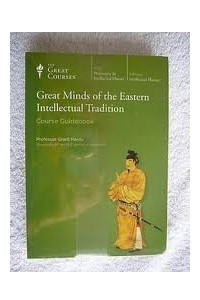Описание книги
We all use language every day of our lives. Language, regardless of the particular dialect spoken, is the tool we use to express our wants, our needs, and our feelings. Recently, many experts who study language have become convinced by an idea about this remarkable human trait that was, only a few decades ago, utterly revolutionary. These experts believe that the capacity for spoken language and the rules for its structure are not cultural but universal—a set of rules shared by humans in ever...
We all use language every day of our lives. Language, regardless of the particular dialect spoken, is the tool we use to express our wants, our needs, and our feelings. Recently, many experts who study language have become convinced by an idea about this remarkable human trait that was, only a few decades ago, utterly revolutionary. These experts believe that the capacity for spoken language and the rules for its structure are not cultural but universal—a set of rules shared by humans in every culture and that even may be hardwired into our brains. Moreover, these rules apply regardless of which of the world's 6,000 languages are being spoken. But what are these rules? How do they work? And how can knowing them enhance your experience of the world? The 36 lectures of Understanding Linguistics: The Science of Language—taught by acclaimed linguist, author, and Professor John McWhorter from the Manhattan Institute—are your opportunity to take a revealing journey through the fascinating terrain of linguistics. You focus on the scientific aspects of human language that were left out of any classes you may have taken in English or a foreign language, and you emerge from your journey with a newfound appreciation of the mysterious machinery built into all of us—an appreciation likely to surface time and again in your everyday life. Gain Insights into How We Speak "When we talk about language, we talk about the way people talk," says Professor McWhorter. Just as linguistics opens windows into our past, it can also reveal more about the world we live in today. It was once possible, perhaps even likely, to go through daily life without encountering someone who spoke a different language. But in today's increasingly diverse world, where you can encounter different languages in different settings and where you might even speak multiple languages yourself, understanding how languages operate is increasingly important and can be extraordinarily rewarding. In Understanding Linguistics, you explore the vast field of scientific linguistics and discover why this burgeoning field is becoming increasingly important in your everyday life: Glean the real meanings hidden in everyday conversations. Understand the process by which young children learn to speak. Comprehend that changes in language (including new words, constructions, or usages) are a normal and inevitable part of the language's evolution. Grasp the complex interaction of language, brain structure, and the physiology of the human mouth. See how the science of language can reveal nuances of human history beyond the reach of any other discipline. From Building Blocks to Social Tools Professor McWhorter explains and illustrates the critical elements and purposes of language, from its most basic building blocks to its uses as a nuanced social tool: The basic sounds from which human language is built and why the English alphabet, with only 26 letters, is inadequate to deal with the 44 sounds of our own language—a dilemma solved by the International Phonetic Alphabet How these sounds are combined into words and words into sentences, and how rules of structure hardwired into everyone's brain work to ensure that those sentences have meaning within whatever language is being spoken How children learn to acquire their first language spontaneously but why learning a second language can be so difficult Why language, from the level of basic sounds to the customs of usage, inevitably changes over time How writing systems, which exist for only about 200 of the world's approximately 6,000 languages, evolved Meet Pioneering Linguists Understanding Linguistics also introduces you to many of the individuals who have most influenced our scientific understanding of language. The business of linguists isn't policing language, correcting your grammar, or acting as a translator; instead, linguists devote themselves to the scientific study of human language. These are Книга «Understanding Linguistics» автора John McWorter оценена посетителями КнигоГид, и её читательский рейтинг составил 8.40 из 10.
Для бесплатного просмотра предоставляются: аннотация, публикация, отзывы, а также файлы для скачивания.
- Просмотров: 221
- Рецензий: 0
- Переводчики: не указаны
- Серия: The Teaching Company - The Great Courses
- ISBN (EAN): не указаны
- Языки: не указаны
- Возрастное ограничение: не указано
- Год написания: не указан
2 оценки
















Рецензии на книгу
Написано 0 рецензий